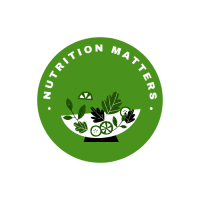I help women transition through menopause and navigate post-menopause by providing nutritional and fitness guidance to help mitigate symptoms and reduce the risk of chronic diseases associated with this life stage.
There are many diverse symptoms that women find themselves affected by as they approach their 40s and 50s.
Most women may start experiencing hormonal changes in their fourth decade, and enter menopause around the age of 51. Others may find themselves facing an early menopause due to medical interventions or certain medical conditions.
My mother was one of them, and this is one of the big reasons for doing what I do. She entered menopause in her late 30s (due to surgery). By the time she passed away suddenly at the age of 59, she was dealing with joint pain and inflammation, high blood cholesterol and heart issues.
Little did I know then that so much of what she was going through had to do with the absence of sex hormones. And another sad truth is that she was being stoic about other symptoms. Feelings too, because menopause was not something that people were openly talking about.
It’s been over 15 years since that happened and the pain of losing her has transformed my life in many ways. It has also motivated me to normalize the conversation about perimenopause and menopause, and help women feel better as they go through it.
It is estimated that approximately 80 percent of women will have some (or many) of the symptoms associated with menopause. And almost 75 percent of them will not seek any kind of treatment, natural or otherwise.
Suffering through it is not the answer!
Regardless of whether a hormonal treatment may be appropriate, there are many diet and lifestyle-related changes that can be explored to help mitigate symptoms and reduce the risk of chronic disease.
Not knowing what’s coming is not OK
Too many women are taken by surprise when the hormones start fluctuating, and we chalk it up to aging. It’s a natural process, right?
Also, because of the ‘grin and bear it’ mentality that we learn along the way (complaining equals negative thinking etc.), we don’t talk about it much.
OK, so aging is a natural process, we can all agree on that. Transitioning into menopause and beyond is also natural.
However, it is not natural is to be expected to ‘just roll with it’ rather than find ways to mitigate symptoms, improve one’s quality of life, and reduce the risk of illness.
Knowledge is power.
Talking about our bodies as we go through perimenopause and menopause is empowering and necessary.
After all, it affects our quality of life and how we feel about ourselves.
There is a problem, however…
We’re allowing societal values to dictate how we feel
Our bodies going through perimenopause and menopause, respectively, is not the equivalent of drawing a line that separates your youthful self from the present aging you.
You are just as beautiful as you’ve always been, and your body just as miraculous. It got you to where you are and it can take you much, much farther.
 Except that of course, hormone fluctuations create symptoms that make you feel anything but beautiful or trustful of your body. We tend to avoid thinking too deeply of menopause and perimenopause because it’s akin to acknowledging that our youthfulness is fading away.
Except that of course, hormone fluctuations create symptoms that make you feel anything but beautiful or trustful of your body. We tend to avoid thinking too deeply of menopause and perimenopause because it’s akin to acknowledging that our youthfulness is fading away.
The general belief is that being young comes with all the good things, while getting older is associated with … well, a massive cringe factor.
Can I ask you to please reconsider, if you are tempted to agree with the statement above?
There’s beauty, fullness, spark, and wisdom that women can and do experience as they transition into menopause. There’s a sureness of oneself that settles in as we transition into this new stage of life.
Yes, I am talking about you and I, and all the women we know, and the wonder that our bodies are at any age, menopause age included.
Let’s apply some irreverence and continue to be our own strongest supporters, shall we?
Growing into our wiser selves is a journey that we should embrace rather than fear.
The more we know about this stage of life, the better equipped we are to help our bodies navigate through it with grace.
Let’s address that together, because quality of life matters and your journey through this transition does not have to be one that chips away at it.
But first let’s agree on this…
Your body is not betraying you
During perimenopause and menopause, women’s bodies are dealing with fluctuating (and dwindling) levels of hormones such as estrogen, progesterone and testosterone, which can affect quality of life through a plethora of unpleasant to debilitating symptoms.
For example, the drop in estrogen initiates changes in the body that increase the risk of many chronic diseases such as heart disease, type 2 diabetes, osteoporosis, and dementia, that start during menopause, and continue in post-menopause.
These hormonal fluctuations cause symptoms and sensations that make you doubt the body you thought you knew so well.
Inflammation, a process that affects our bodies in a myriad of ways throughout life, more so with certain eating and lifestyle habits, is also increasing as estrogen levels plummet.
Aside from the unseen aspects of hormonal fluctuations, there’s the visible ones too.
That weight creeping up and the thickening of your waist? Check!
The ‘meno-belly’ you may have heard whispers of, which now is becoming a reality for you, even though you are eating the same foods and doing the same things you’ve always done, including exercise, and that seemed to have worked just fine… until now.
Skin getting thinner and dryer, and those wrinkles that seem to show up overnight? Check!
And there’s more…
- Joint and muscle pain
- Brain fog, memory issues, mood swings and depression, lack of motivation and bouts of hopelessness
- Unpredictable periods, both frequency and flow
- Hair thinning and hair loss
- Night sweats and hot flushes
- Sleep disturbance
- Loss of libido, vaginal dryness and atrophy, and painful intercourse
- Digestive issues
Not fair? I agree.
Is this making you feel confused and frustrated? Absolutely.
Not sure of your own body? Ditto.
Fearing the future? You shouldn’t.
First thing first: It’s not in your head! Also, the risk of chronic disease such as osteoporosis, type 2 diabetes, heart disease and dementia should not be ignored. Not when there is a better way.
Secondly: Your body is trying to cope with the now fluctuating (dwindling) levels of hormones that have been keeping things in balance until now.
Thirdly: There are ways to feel better.
Don’t hide it
You may be too embarrassed to talk about everything that suddenly seems to be happening to your body, or perhaps too scared to admit to yourself that you are transitioning to a new life stage.
And you may be anxious of what’s next and whether you’ll get through it without losing the things you value most: trust in yourself, relationships you don’t want to see affected, and hope that life has lots more joy and adventures in store.
Take a deep breath and say it with me: It’s going to be OK.
Because it will be.
And, you can still:
- Feel good in your body,
- Have the freedom to do things and pursue dreams,
- Grow into the comfort and pleasure of knowing your body well once more…
Now with the extra glow of wisdom that come with understanding the transition you are living through.
So, let’s change do it better
If we agree that ‘just live with it’ is not a good enough answer, what then?
As with so many things in life that we make happen in a good way, the magic is in how we approach it.
Let’s explore all of this together and find ways to mitigate symptoms and reduce the risk of chronic illness by choosing foods that can support you as you go through this transition.
Because it is possible to:
- Lower the severity of joint and muscle pain
- Reduce the frequency of hot flushes (or flashes) and night sweats
- Have better mood and improved brain function
- Improve digestion and gut health
- Feel more confident about your sexual health
- Improve muscle mass and strength, and bone health
- Maintain a healthy weight
- Feel positively about yourself
When we are open to possibilities, a better path appears
 We have come a long way from the times when talking about ‘womanly’ things like menopause was either ignored or considered improper. We’re still not where we should be, but we are beginning to recognize that that talking about menopause and perimenopause, female hormones, and the roller coaster they create is not only beneficial for women as they go through it, but for their loved ones too.
We have come a long way from the times when talking about ‘womanly’ things like menopause was either ignored or considered improper. We’re still not where we should be, but we are beginning to recognize that that talking about menopause and perimenopause, female hormones, and the roller coaster they create is not only beneficial for women as they go through it, but for their loved ones too.
Our partners, children, and the people who care about us and our well-being can better support us when they know about this journey and its complex effects on our bodies.
